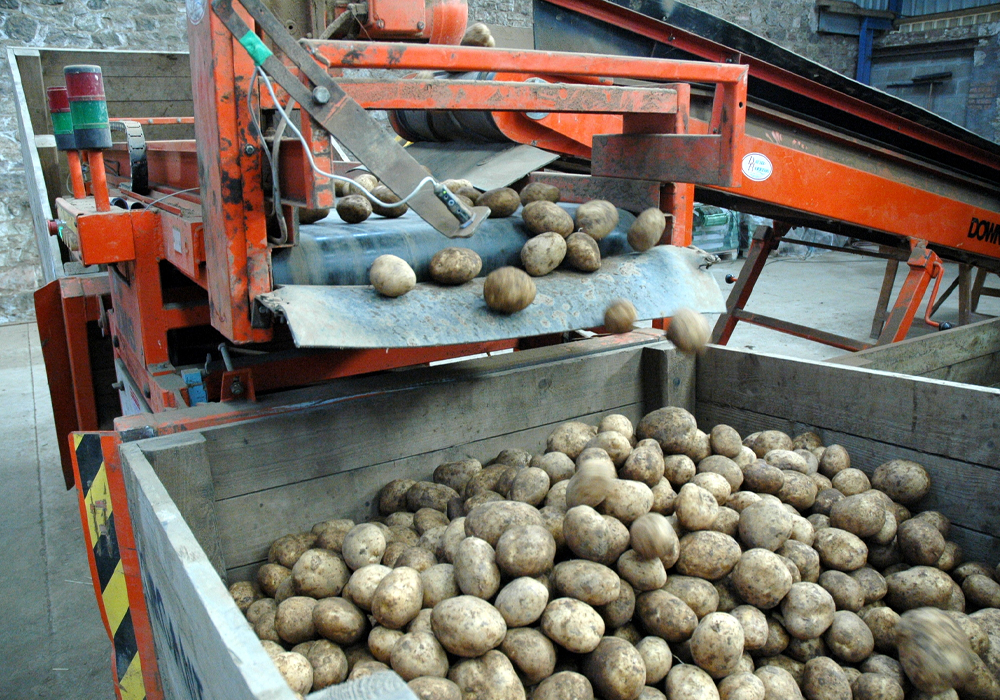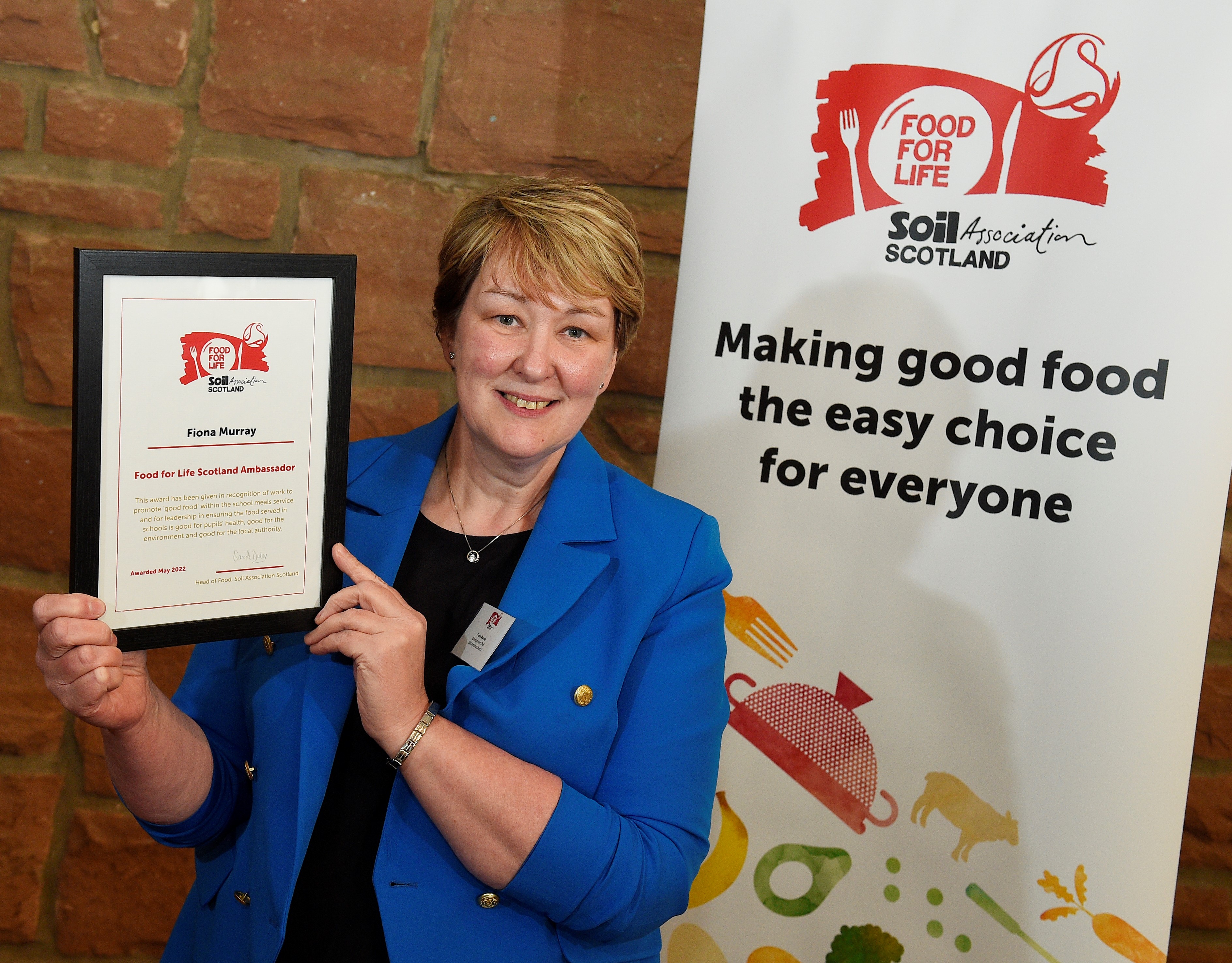Achieving the Gold standard
🏆 FFLSH since 2008 🏫 5,100 meals daily in 43 primaries
East Ayrshire Council provides Food for Life Served Here (FFLSH) Gold award school meals to pupils in 43 primary schools daily, 3,600 of which are free school meals.
The council’s school meals service is recognised widely for taking a lead in providing high-quality and sustainable meals. It began the process of FFLSH certification prior to the award launching in Scotland and was the first local authority area to achieve the Gold FFLSH award, when the scheme was first introduced in 2008.
East Ayrshire Council has demonstrated that good food can become the norm in Scottish public sector meals.
National Leadership
The council wanted to go beyond taking a purely commercial approach to school meals by taking serious account of the health, environmental, economic and educational benefits of good food. The FFLSH framework offered a national standard against which to benchmark its work in transforming menus.
Andrew Kennedy, Head of Facilities and Property Management for the council, says, “The Food for Life approach was the only standard which told the whole ‘farm to fork’ story. For our part, we wanted, as a council, to see how sustainable we could make a school meal.
“We knew from our own research that organic food was the right approach; that there were things we could do as a council to reduce our carbon footprint; and that by using a social return on investment (SROI) model, for every £1 we invested, the SROI was £6.”
East Ayrshire Council became a national leader in making good food the norm in Scottish schools. Andrew adds, “I wouldn’t underestimate the help and support that the Soil Association did to start us off. We don’t see our approach as unique but as part of a national approach which has a wider impact. Anything that tries to put out the message that food should be ethical and sustainable is important.”
A long-term approach
The council took an economic development approach rather than a lowest-cost approach, supporting small suppliers to develop their skills and their capacity to bid for tenders and contracts rather than expecting small suppliers to compete on an equal footing with large-scale, national suppliers. This was coupled with making the procurement process as fair and accessible as possible.
In terms of cost, the approach taken by the council is about making an all-round investment. While it acknowledges that it is possible to buy raw ingredients cheaper, it places a high value on better quality products and meals, and the community benefits of doing so.
The council has found simple ways to manage higher ingredient costs by reducing the amount of meat in a recipe and increasing the vegetables, or by using better quality meat to reduce the waste associated with cheaper cuts.
Andrew says, “Since achieving the award, we have come out at about average, or slightly, but not significantly, higher than most other authorities. Our strategy is not about making food cheap; it’s about the value of the food on the plate.”

Organic, plastic free milk for East Ayrshire schools
Read about East Ayrshire's work with Mossgiel Organic Farm

Building local relationships
In 2004, there was limited scope for the council's existing large-scale suppliers to provide organic or fresh products at the volumes required. So, it set about supporting local business to deliver.
Andrew says, “Ayrshire is a farming area so we thought that there must be producers nearby who could supply what we needed. We identified a half a dozen or so who could supply to us, and we started by piloting the new approach in one school. We didn’t ask local small-scale suppliers to bid to supply 40 schools from the very outset.”
After the success of the pilot, the council advertised a contract to supply food and beverages for 30 schools for three years and has increased incrementally from there. It also divided the overall contract into smaller lots, opening up opportunities for local SMEs to bid according to their specialisms.
Many of the same suppliers are still working with the council. As Andrew says, “The relationships we have built with local suppliers are a strength of what we have achieved here. They have contributed to our consistency in having the Gold award over the long term.”
Fiona Murray, Development Chef, is the Food for Life Scotland Ambassador for East Ayrshire.
As part of her action plan to promote the good food movement within her local authority she is engaging with pupils, staff and parents through eating workshops, snack cooking sessions and food groups to make healthier snacks the easier choice in schools.
This has begun with projects in Galstone Primary and St Sophia’s Primary. This will help students to boost their nutritional intake as well as energy levels and in turn support their learning and wellbeing.








